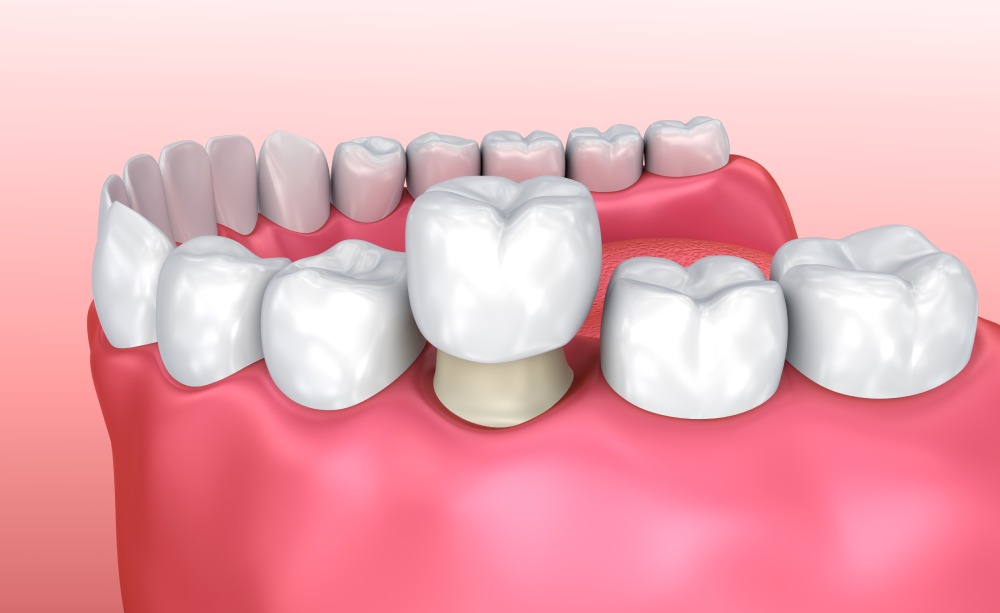HEALTH
Guide to Dental Crowns

Introduction to Dental Crowns
Dental crowns, a key component in restorative dentistry, offer a robust solution for teeth that are damaged or decayed. These custom-fitted caps are designed to cover the entire tooth, restoring its shape, size, strength, and aesthetic appeal. Crowns are not just about repairing and protecting teeth; they also enhance the overall look of your smile. They are often the go-to option when a tooth is too compromised for a simple filling or has undergone significant wear. For more detailed information on dental crowns in Raleigh, NC, and their benefits, you can visit this website.
Types of Dental Crown Materials
Choosing the right material for a dental crown is crucial as it affects the crown’s durability, appearance, and how well it matches your natural teeth. Here’s an overview of the most common materials:
Ceramic Dental Crowns
Ceramic crowns are favored for their natural look, making them an excellent choice for front teeth restorations. Made from dental ceramics like porcelain, they are known for their ability to blend seamlessly with the natural color of your teeth. While they excel in aesthetics, they may not be as robust as metal crowns, making them more suitable for areas with less intense biting pressure.
Porcelain-fused-to-metal (PFM) Dental Crowns
PFM crowns strike a balance between strength and aesthetics. They have a metal core covered with porcelain, offering both durability and a natural appearance. These crowns are stronger than pure ceramic ones and are a good choice for both front and back teeth. However, the porcelain layer can wear down or chip over time, potentially revealing the metal underneath.
Metal Dental Crowns
Metal crowns, typically made from gold, platinum, or base-metal alloys like nickel or chromium, are known for their exceptional durability. They withstand biting and chewing forces well and tend to last longer than other types. Their metallic color is the main drawback, making them more suitable for molars that are not easily visible.
Zirconia Dental Crowns
Zirconia crowns are a newer option that combines the strength of metal with the aesthetic appeal of ceramic. They are extremely durable and can withstand the wear and tear of back teeth while still looking aesthetically pleasing for front teeth. Zirconia crowns can be a great all-around choice for many patients.
Choosing the Right Material for Your Dental Crown
When it comes to selecting the right material for your dental crown, several factors need to be considered. These include the location of the tooth, the amount of natural tooth remaining, your bite, and your aesthetic preferences. Your dentist will guide you through the options, helping you choose the material that best suits your specific needs and lifestyle. For those in Raleigh, NC, seeking personalized advice on dental crowns, this website offers comprehensive information and expert guidance.
The Dental Crown Procedure
The process of getting a dental crown typically involves two visits to the dentist. Here’s a brief overview of what to expect:
- Initial Consultation and Tooth Preparation: The journey begins with a thorough examination of the tooth requiring the crown. This step may involve X-rays and creating a mold of your mouth to ensure a perfect fit. The dentist then carefully reshapes the tooth, filing it down to prepare for the crown. In cases where the tooth structure is compromised, a filling material might be used to rebuild it, ensuring a solid foundation for the crown.
- Temporary Crown and Impressions: Next, an accurate impression of the prepared tooth is taken, which serves as a blueprint for the permanent crown. Meanwhile, a temporary crown is placed to protect the tooth and maintain its functionality and appearance. This temporary fixture also helps in assessing the bite and fit, ensuring the final crown will be comfortable and effective.
- Placement of the Permanent Crown: The final visit involves the removal of the temporary crown and the fitting of the permanent one. The dentist meticulously checks the fit, color, and alignment with adjacent teeth. Adjustments are made as necessary to ensure a natural look and comfortable bite. Once everything is deemed perfect, the crown is securely cemented into place, marking the completion of the procedure.
Caring for Your Dental Crown
Proper care can extend the life of your dental crown. This includes regular brushing and flossing, avoiding hard foods that can crack the crown, and regular dental check-ups. Remember, a crown doesn’t protect the underlying tooth from decay or gum disease, so good oral hygiene is crucial.
Potential Issues and Solutions
While dental crowns are generally very successful, issues can sometimes arise. These might include discomfort or sensitivity, a loose crown, or even a crown falling out. If you experience any of these problems, contact your dentist immediately for advice and treatment.
Conclusion
Dental crowns represent a significant advancement in restorative dentistry, offering a reliable and effective solution for restoring damaged teeth. They not only improve the function and appearance of your teeth but also contribute positively to your overall oral health. Understanding the process, materials, and care involved in getting a dental crown is crucial. Remember, choosing the right dental crown can significantly enhance your smile and the health of your teeth, ensuring long-term benefits for your oral well-being.
Having completed my education in English, I’ve cultivated a successful career as a content writer. My tenure includes valued collaborations with distinguished professional organizations, reflecting my commitment to producing high-quality content.
Contact me on this mail: [email protected]










